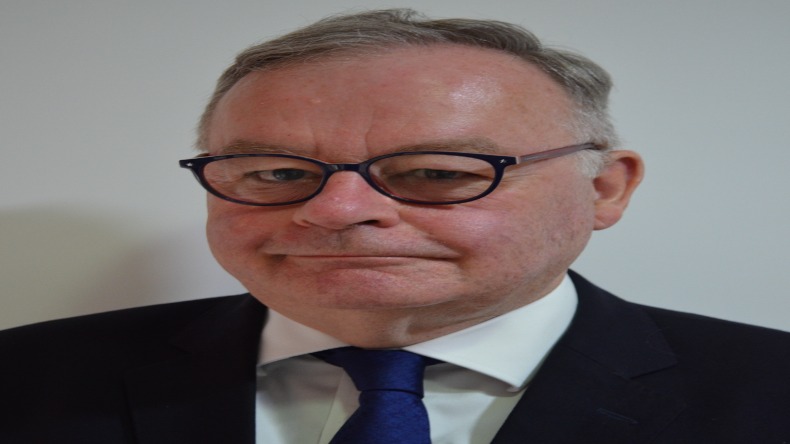Ambassador Brendan Ward, the Irish Envoy to India, is set to complete his tenure in India. Despite the endless challenges posed by the pandemic, Ambassador Ward and his dynamic team at the Irish Embassy remained committed to promoting the cultural ties between India and Ireland. Given the rich literary legacy that Ireland enjoys, Irish authors are always greatly welcomed in India. “Obviously, it is a little bit expensive to bring people from Ireland to India, but in general, we find there’s a large receptive audience in this country. So we consider it a pretty good value. For example, there is a strong Irish participation in the Long Night of Literature, and then we had three Irish authors visiting the Jaipur Literature Festival,” explains Ambassador Ward.
The three authors were rather interesting and diverse people, viz., Merlin Sheldrake, Anna Della Subin, and Tadhg Mac Dhonnagáin. “Merlin has written a very interesting book on fungi and mushrooms and their role in all of our lives. He seems to think that they will take over the world if we don’t keep an eye on them. Anna Della Subin is actually American-born but has lived in Ireland for a long time. And she had a very interesting book on accidental gods, the human beings who find themselves inadvertently regarded as or worshipped as gods in certain circumstances. The best-known example is probably that of the late Duke of Edinburgh, who on some Polynesian islands was regarded as a god. And then, interestingly, the author brought by the European Union delegation was Tadhg Mac Dhonnagáin. He writes in the Irish language, which even in Ireland is a very minority pursuit,” adds Ambassador Ward.
Dhonnagáin, to his surprise, garnered a lot of attention from the Indian publishers. “We are really very happy that during his time in Jaipur he had discussions with a number of Indian publishers, and it seems likely that some of his work will be translated into Hindi, possibly also into Tamil. So it will give him a readership bigger than the entire population of Ireland. So that was certainly a very successful visit,” rejoices Ambassador Ward, who regrets that normal National Day receptions couldn’t be held in 2020 and 2021 owing to the pandemic. As a result, the culture department in the ministry in Dublin prepared online events for embassies all around the world. In the case of India, the Embassy had musical performances by groups, including a group that was very, very big in th)e 1990s called the ‘Hothouse Flowers,” which is well known for its blend of traditional Irish music and contemporary rock.
There are a lot of common threads between India and Ireland, which make the two countries natural allies. “I also want to come to the historical part of the cultural ties between India and Ireland. I know that a lot is happening right now, but historically, the ties have been long. I mean, the English language is a major bridge between Ireland and India and has been for well over 100 years,” explains Ambassador Ward. He further adds, “There are considerable parallels in our independence movements and independence struggles. Ireland became an independent country 100 years ago, and India got its independence around 75 years ago. And there was a great deal of linkage and correspondence between the leaders of the independence movements in both countries.”
The Embassy of Ireland, together with the various Indian women’s groups, earlier in the year made a short film on the lives of the leading Irish and Indian feminist women activists, including the first woman to be a magistrate in India, Margaret Elizabeth Cousins. It was part of a series of films on the role of women in the Irish independence movement. Speaking of films, there is an Indian Film Festival in Dublin that takes place at the end of October every year now. “The Indian Film Festival of Ireland (IFFI) has been running for about 12 years. The actor and director Siraj Zaidi last year brought Irish films to India, and happily, we used the same acronym, IFFI. And it was a very successful undertaking. Just a small weekend festival with four Irish movies at the Marwah Film Studios in Noida,” recollects Ambassador Ward.
There has been a steady influx of Indian students in Ireland over the last few decades. “40 years ago, when I was a student at Trinity College in Dublin, the University of Dublin, I think there were maybe a small bunch of Indian students in the entire university, and today there are around 700. I think it is considerable growth. The university is not big by Indian standards, with about 25,000 students in total. The Indian community in Ireland has been quite noticeable, which means that Irish people are more exposed to Indian culture, Indian music, Indian food, and Indian film,” rejoices Ambassador Ward, who is hopeful that Ireland’s diplomatic and official presence in India will continue to grow even after he has left the office.
“This is our oldest embassy in Asia. Next year, we will celebrate 60 years of the Irish presence or the presence of the Irish Embassy in New Delhi. It started with, I think, two diplomats and a three-member Indian staff. Today, we have in Delhi a nine-member diplomatic staff from Ireland along with a total of 35 Indians. So things have been growing, and they will continue to grow,” sums up Ambassador Ward.

